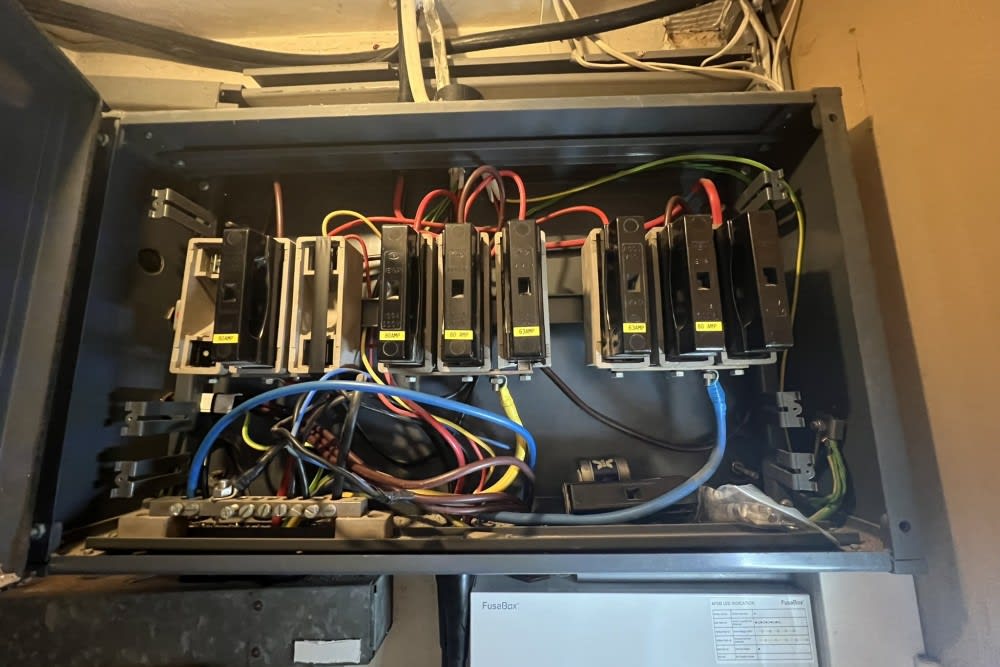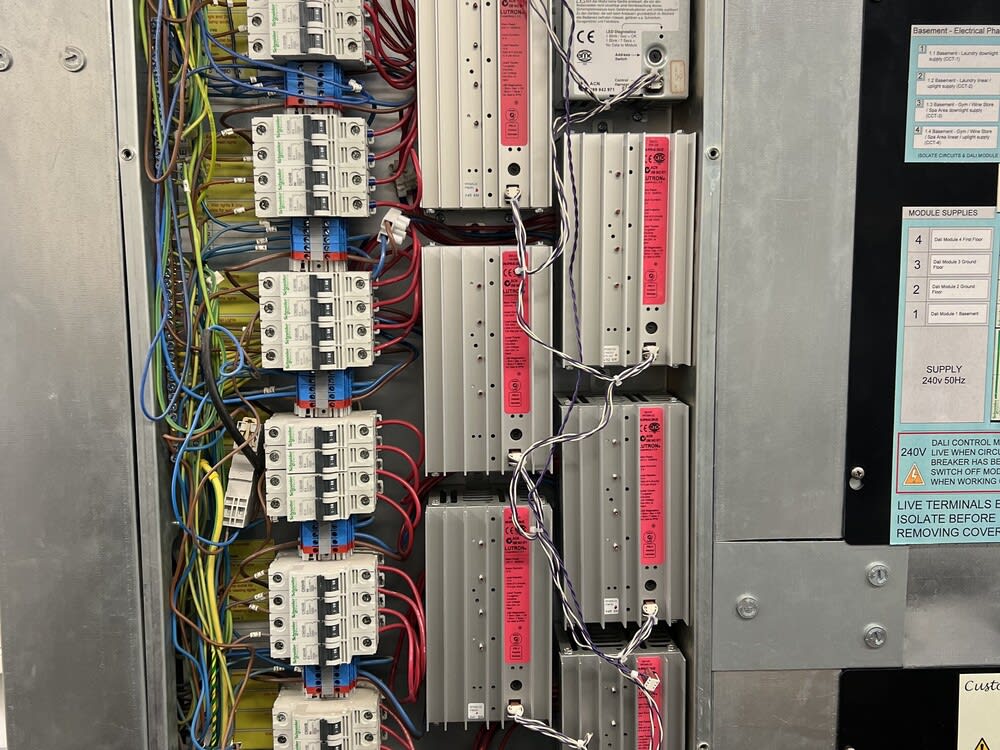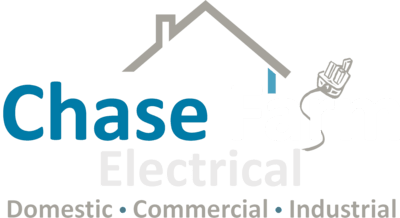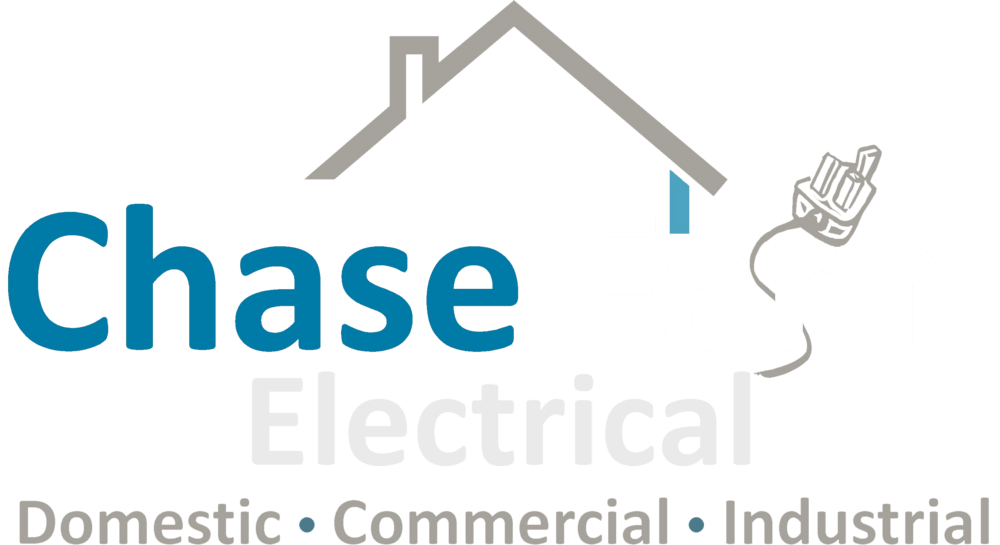
posted 26th November 2024

The Ultimate Guide to Commercial EICR: Ensuring Electrical Safety in Your Business
Welcome to the ultimate guide on commercial EICR, where we'll equip you with the knowledge you need to ensure electrical safety in your business.
As a business owner, you know the importance of providing a safe work environment for your employees and customers. Electrical installations are a critical part of any business, but they can also pose risks if not properly maintained. That's where the Electrical Installation Condition Report (EICR) comes in. In this comprehensive guide, we'll walk you through what a commercial EICR is, why it's essential, and how it can help you identify potential hazards before they become a problem.
We'll also cover the legal requirements surrounding EICR and the consequences of non-compliance. With expert insights and practical tips, you'll learn how to select a qualified electrician who can carry out a thorough inspection, interpret the EICR report, and take appropriate action to rectify any issues. By staying on top of your electrical safety obligations, you can avoid unexpected electrical failures, safeguard your business, and provide peace of mind for everyone involved. Don't let electrical safety be an afterthought.
Let's dive into the world of commercial EICR and take control of your business's electrical infrastructure.
Understanding the importance of electrical safety in businesses
Electrical safety is a fundamental aspect of any business, regardless of size or industry. An effective electrical system is not only vital for the smooth operation of your daily activities but also essential for protecting the health and safety of your employees and customers. Poorly maintained or outdated electrical installations can lead to serious hazards, including electrical shocks, fires, and equipment failures that can disrupt business operations. Addressing these risks is not just a legal obligation; it's a moral responsibility to ensure a safe working environment.
By prioritizing electrical safety, businesses can prevent accidents that may lead to injuries or fatalities, protecting their most valuable asset – their people. Moreover, a commitment to electrical safety fosters a culture of responsibility and care within the organization. This proactive approach not only enhances employee morale but also increases customer confidence and loyalty, as clients are more likely to trust businesses that take their safety seriously. In an era where corporate social responsibility is increasingly important, demonstrating a commitment to safety can also enhance your brand's reputation.
Additionally, regular electrical safety measures, such as conducting an Electrical Installation Condition Report (EICR), can help identify potential issues before they escalate into costly problems. This preventive strategy minimizes downtime, reduces repair costs, and ultimately protects the financial health of the business. In this way, investing in electrical safety is not merely an expense; it's a strategic decision that can yield significant long-term benefits for your organization.
What is an EICR and why is it necessary?
An Electrical Installation Condition Report (EICR) is a comprehensive assessment of the electrical systems within a commercial property. This report is designed to evaluate the safety and functionality of electrical installations, ensuring they meet current safety standards and regulations. The EICR process involves a thorough inspection and testing of the electrical systems, including wiring, circuit breakers, and other critical components. The resulting report provides a detailed analysis of the condition of the electrical installations, highlighting any issues that require attention.
The necessity of an EICR stems from the inherent risks associated with electrical systems. As electrical installations age, wear and tear can lead to potential hazards, such as short circuits, overheating, and even electrical fires. Regular EICR assessments are essential for identifying these risks before they can cause harm. By having an up-to-date EICR, businesses can demonstrate their commitment to safety while also ensuring that they comply with legal requirements.
Moreover, an EICR is not just a regulatory formality; it serves as a valuable tool for business owners. The report provides insights into the current state of electrical installations, enabling informed decision-making regarding maintenance, upgrades, and future investments in electrical infrastructure. This proactive approach to electrical safety can extend the lifespan of equipment, reduce energy costs, and ultimately contribute to a more efficient and reliable business operation.
Legal requirements and regulations for commercial EICR
There are specific legal requirements and regulations surrounding electrical safety in commercial properties. The Electricity at Work Regulations 1989 mandates that all electrical systems must be maintained to prevent danger. This legislation emphasizes the need for regular inspections and assessments, making EICRs a critical component of compliance. Failure to adhere to these regulations can result in severe consequences, including fines, legal liabilities, and even closure of the business.
Additionally, the Health and Safety at Work Act 1974 places a duty of care on employers to ensure the safety of their employees and any visitors to their premises. This includes conducting regular risk assessments and implementing appropriate safety measures. An EICR is a crucial element of this process, providing the necessary documentation to demonstrate compliance with safety standards. By having a current EICR, businesses can protect themselves from potential legal repercussions and maintain a safe working environment.
It's also worth noting that insurance providers often require proof of an up-to-date EICR as a condition for coverage. In the event of an incident involving electrical failure, having a valid EICR can be critical for making an insurance claim. Without this documentation, businesses may find themselves facing significant financial losses and liabilities. Thus, understanding and adhering to the legal requirements surrounding EICRs is not only essential for safety but also for protecting the financial interests of the business.
The process of conducting a commercial EICR
- Conducting a commercial EICR involves several key steps, beginning with the initial assessment of the property. A qualified electrician will typically start by reviewing the existing electrical documentation, including previous EICRs, installation certificates, and any maintenance records. This preliminary review helps the electrician understand the history of the electrical systems and identify any areas of concern that may require closer examination.
- Once the preliminary assessment is complete, the electrician will move on to the physical inspection of the electrical installations. This inspection includes checking the condition of wiring, sockets, switches, circuit breakers, and other components. The electrician will also look for signs of wear, damage, or any modifications that may have been made since the last inspection. During this stage, various testing methods will be employed, including insulation resistance testing and earth fault loop impedance testing, to evaluate the safety and performance of the electrical systems.
- After completing the inspection and testing, the electrician will compile their findings into a comprehensive EICR report. This report will detail the condition of the electrical installations, highlighting any issues or non-compliances with the relevant safety standards. The report will categorize any findings into different classifications, such as 'C1' for immediate danger, 'C2' for potentially dangerous, and 'C3' for improvement recommendations. This classification system helps business owners prioritize necessary actions and ensure that any urgent issues are addressed promptly.
Common electrical issues identified in commercial EICRs
During the EICR process, several common electrical issues may be identified that could pose risks to safety and compliance. One prevalent issue is inadequate earthing and bonding, which can lead to electrical shocks and equipment damage. Proper earthing is essential for safely dissipating electrical faults, and any deficiencies in this area should be rectified immediately to prevent hazardous situations.
Another frequent issue found in commercial properties is the presence of damaged or worn wiring. Over time, cables can become frayed, cracked, or otherwise compromised, increasing the risk of short circuits and electrical fires. Insulation degradation due to age, environmental factors, or physical damage can also lead to serious safety concerns. Addressing any wiring issues identified in the EICR is crucial for maintaining a safe electrical system.
Furthermore, outdated or improperly rated circuit breakers can also pose significant risks. Circuit breakers are designed to protect electrical circuits from overloads and faults, but if they are not functioning correctly or are of insufficient rating for the load they carry, they can fail to provide adequate protection. The EICR process will highlight any necessary upgrades or replacements needed to ensure that circuit protection is reliable and effective.
Tips for preparing your business for a commercial EICR
Preparing for a commercial EICR is an important step that can help streamline the inspection process and ensure a successful outcome. One of the first things you can do is to gather all relevant electrical documentation, including previous EICRs, installation certificates, and maintenance records. This information will be invaluable to the electrician conducting the inspection, as it provides context regarding the history and condition of your electrical systems.
Next, consider conducting a preliminary internal assessment of your electrical installations. Walk through your premises and take note of any visible issues, such as damaged outlets, flickering lights, or unusual sounds from electrical equipment. Addressing these concerns before the EICR can help mitigate potential findings during the official inspection. It also shows the inspector that you are proactive about electrical safety, which can foster a collaborative atmosphere during the assessment.
Lastly, inform your employees about the upcoming inspection and its significance. Encourage them to report any electrical concerns they may have noticed, as their insights can be valuable during the EICR process. By fostering open communication about electrical safety, you create an environment where safety is a priority, and employees feel empowered to contribute to the overall well-being of the workplace.
How to choose a qualified electrician for your commercial EICR
Selecting the right electrician for your commercial EICR is crucial for ensuring a thorough and accurate assessment of your electrical systems. Start by looking for electricians who are qualified and experienced in commercial electrical work. Check for relevant certifications, such as those from the National Inspection Council for Electrical Installation Contracting (NICEIC) or the Electrical Contractors Association (ECA), which indicate that the electrician meets industry standards and is competent in their field.
Click here for a link to the NIC EIC approved contractor list
It's also essential to consider the electrician's experience with EICRs specifically. Ask for references or case studies from previous clients who have undergone similar assessments. A qualified electrician should be able to demonstrate their familiarity with the EICR process and provide insights into how they approach inspections, including the types of testing methods they use and their reporting practices.
Finally, don't hesitate to discuss pricing and timelines upfront. A reliable electrician will provide a clear breakdown of costs associated with the EICR process and offer an estimated timeline for completion. This transparency helps you manage your budget effectively and ensures that you are on the same page regarding expectations. By taking the time to choose the right electrician, you set the stage for a successful EICR that enhances your business's electrical safety.
Cost considerations for commercial EICR
When planning for a commercial EICR, it is essential to consider the associated costs to ensure that your budget accommodates this crucial safety measure. The cost of an EICR can vary widely based on several factors, including the size of the property, the complexity of the electrical systems, and the geographical location. Larger commercial properties with extensive electrical installations may incur higher costs due to the increased time and resources required for the inspection.
Another significant factor influencing the cost is the condition of the electrical systems. If previous inspections have identified numerous issues that need addressing, the electrician may need to spend additional time on the assessment to ensure a thorough evaluation. In some cases, if major repairs or upgrades are necessary following the EICR, these costs should also be factored into your overall budget.
It's also worth considering the potential long-term savings associated with regular EICRs. While the upfront cost may seem substantial, investing in electrical safety can prevent costly repairs, reduce downtime, and lower insurance premiums over time. By viewing the EICR as a long-term investment rather than a one-time expense, you can better appreciate the value it brings to your business and ultimately enhance its financial health.
Conclusion
The importance of regular commercial EICRs for electrical safety in businesses
In conclusion, the importance of regular commercial EICRs cannot be overstated. These assessments serve as a vital tool for ensuring electrical safety in your business, helping to identify potential hazards and compliance issues before they escalate into serious problems. By prioritizing electrical safety through routine inspections, you not only protect your employees and customers but also safeguard your business's financial integrity and reputation.
Furthermore, understanding the legal requirements and regulations surrounding EICRs empowers business owners to remain compliant while fostering a culture of safety within the organization. The proactive measures taken in preparing for and conducting an EICR not only demonstrate a commitment to safety but also contribute to the overall operational efficiency of the business.
Ultimately, investing in regular EICRs is an investment in the future of your business. By ensuring that your electrical installations are safe, reliable, and compliant with current standards, you can create a work environment that prioritizes the well-being of everyone involved. Embrace the importance of electrical safety and make EICRs a regular part of your business's maintenance strategy, paving the way for a safer and more successful future.
Why Choose Chase Farm Electrical for Your Commercial EICR?
At Chase Farm Electrical, we have a proven track record of delivering reliable and thorough Commercial EICR inspections for businesses of all sizes. From retail spaces, churches, nursing homes to industrial facilities, our expert team ensures your electrical systems are compliant, safe, and efficient.
Let us help you safeguard your workplace.
Click below and explore our examples of completed work to see how we’ve helped businesses like yours maintain electrical safety and peace of mind.






